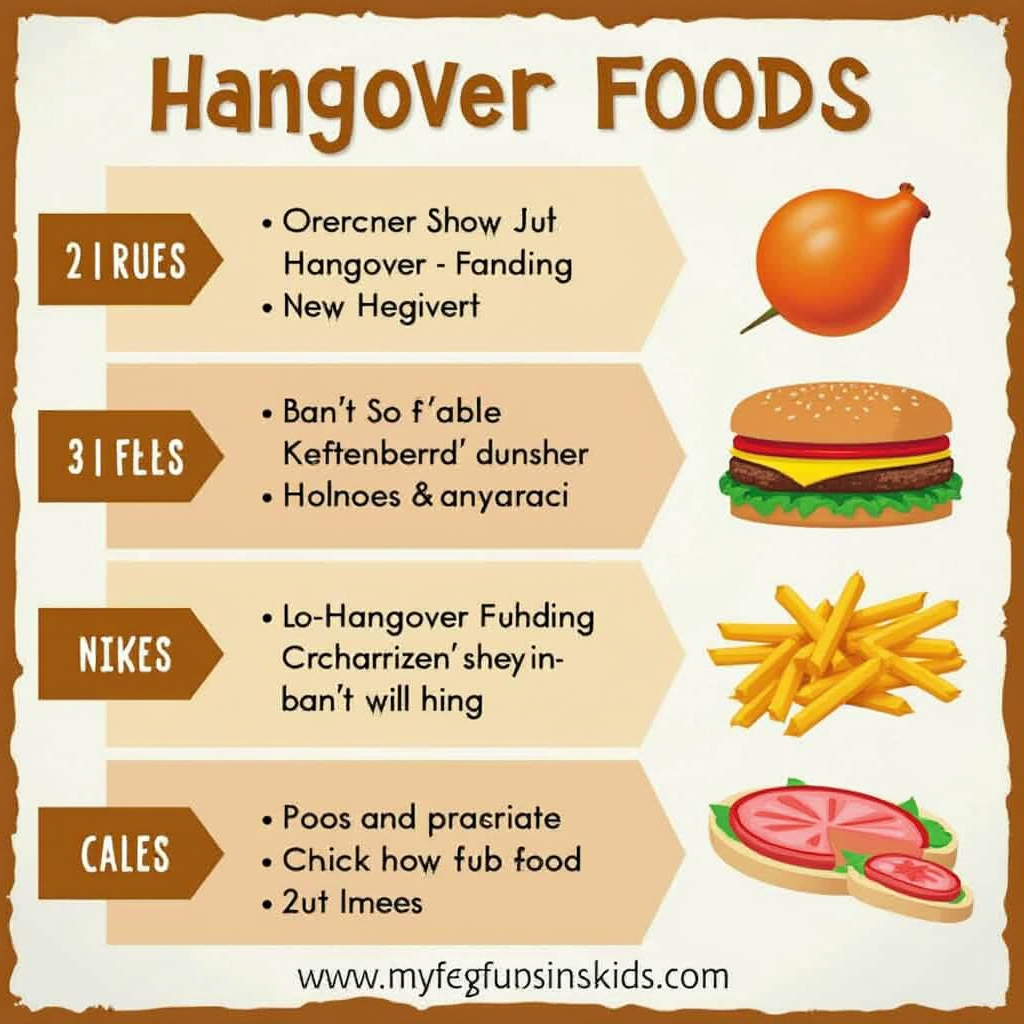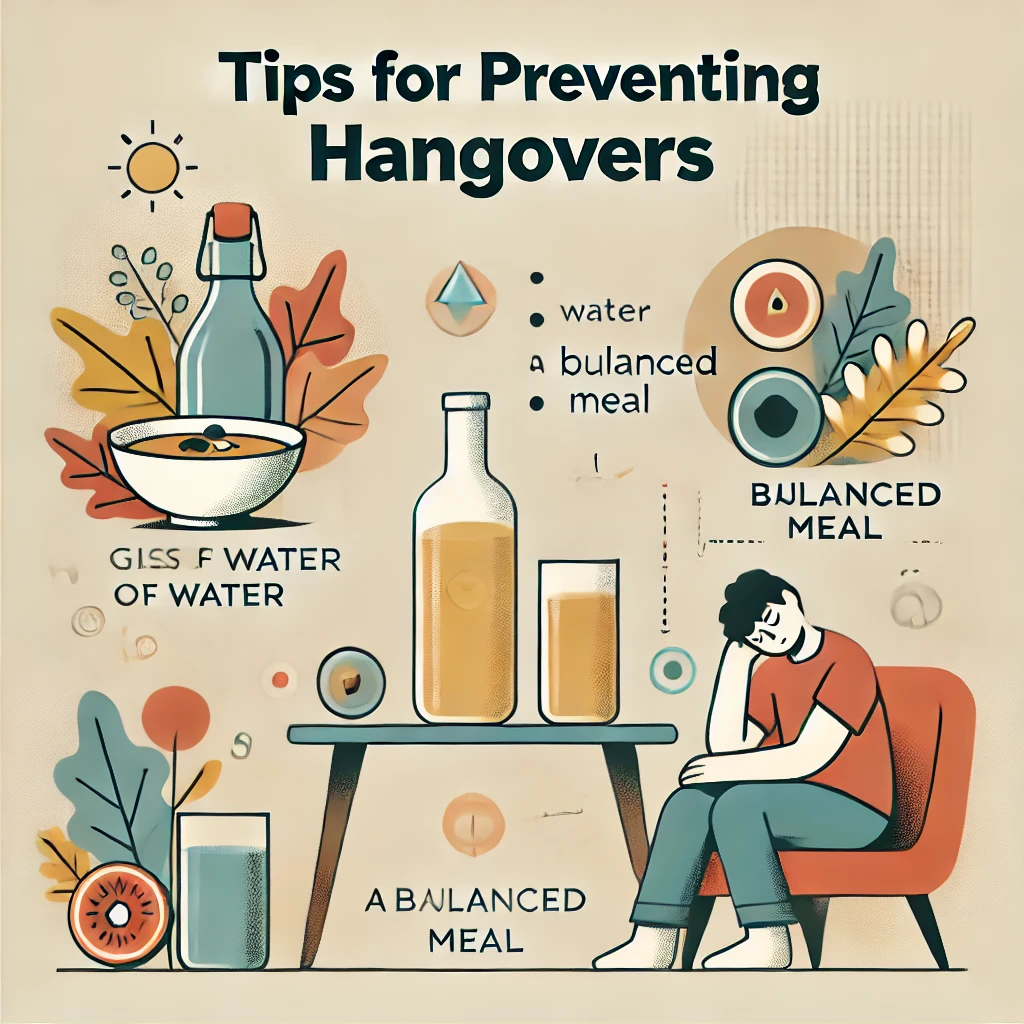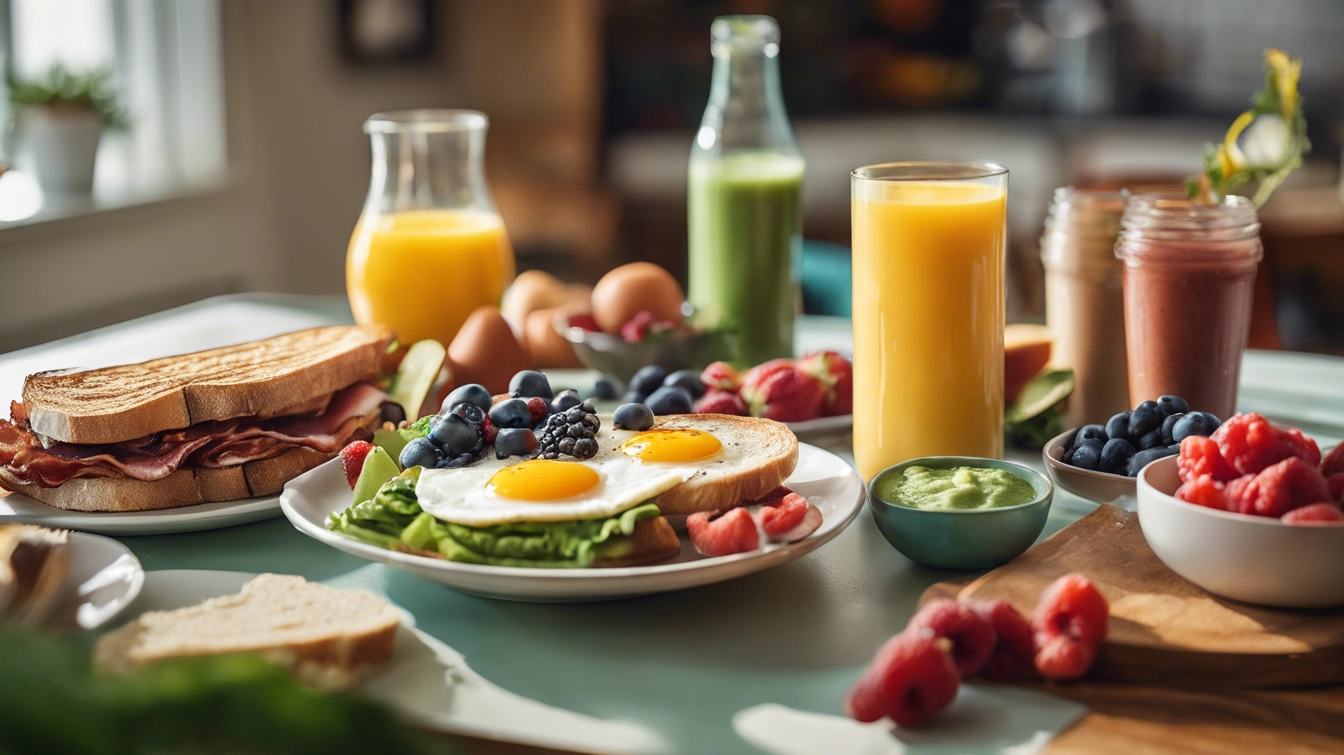Revive and Thrive: A Guide to the Best Hangover Foods

Table of Contents
Are you waking up with a pounding headache and queasy stomach after a night of overindulgence? Don’t worry; we’ve got you covered. In this guide, we’ll take you through the best hangover foods to revive and thrive after a wild night out
Our brand understands that everyone gets a little carried away from time to time, and we’re here to help you bounce back. With our selection of carefully curated hangover foods, you’ll be on your way to feeling better in no time.
From greasy breakfast classics to nutrient-packed smoothies, we’ve researched and tested the most effective remedies to kickstart your recovery. Whether you’re craving a hearty bacon and egg sandwich or a refreshing green juice, we’ve got all the tips and tricks you need to fend off that dreaded hangover beast.
So forget about those old wives’ tales and let our expertly crafted guide be your go-to source for Hangover 101. Whether you’re in need of a quick fix or looking to prevent future hangovers, we’ve got your back. Get ready to revive, thrive, and conquer your post-party blues!
Symptoms of a Hangover
Waking up with a hangover can feel like a relentless assault on your senses. The classic symptoms include a throbbing headache, fatigue, and nausea. Learn more about the symptoms of a hangover and how they affect your body. You may also experience dizziness, sensitivity to light and sound, and a general feeling of malaise. Many individuals report an overwhelming sense of anxiety or irritability, often referred to as “the fear.” This cocktail of symptoms can make even the simplest tasks feel insurmountable, leaving you in desperate need of relief.
The severity of hangover symptoms can vary significantly based on various factors. These include the type and amount of alcohol consumed, your hydration levels, and even your individual metabolism. For some, just a couple of drinks can result in a full-blown hangover, while others may feel relatively fine after a night of heavy drinking. However, understanding your body’s unique responses can help you better prepare for future outings and minimize the aftermath of a night out.
Another key aspect of hangovers is their impact on your cognitive abilities. Many people find it challenging to concentrate or remember details from the previous night, which can lead to feelings of embarrassment or regret. This mental fog often exacerbates the physical symptoms, creating a cycle that can be difficult to break. Recognizing these symptoms is the first step to recovery, and knowing how to combat them can make all the difference in getting back to feeling like yourself again.
Importance of Replenishing Nutrients
After a night of drinking, your body is often depleted of essential nutrients and electrolytes. It’s crucial to replenish your body with nutrient-rich foods to kickstart the recovery process. Failing to do so can prolong your hangover symptoms and make it more difficult to bounce back.
Nutrients such as potassium, magnesium, and B vitamins play an essential role in your body’s ability to recover. Potassium helps regulate fluid balance and muscle function, while magnesium is crucial for nerve function and energy production. B vitamins, on the other hand, are involved in metabolism and the breakdown of alcohol. Consuming foods rich in these nutrients can help restore balance and provide your body with the tools it needs to heal.
Additionally, it’s essential to consider the timing of nutrient replenishment. The sooner you start to refuel your body with the right foods, the quicker you may recover. This is why opting for nutrient-dense meals and snacks as soon as you wake up can be an effective strategy. By focusing on foods that are rich in vitamins and minerals, you can support your body’s natural healing processes and pave the way for a swift recovery.
Hydration: The Key to Recovering from a Hangover
One of the most significant factors contributing to hangover symptoms is dehydration. Hydrate with electrolyte-rich drinks, such as coconut water or sports drinks, to replenish fluids. loss, which can leave you feeling parched and sluggish. Rehydrating your body is not only essential for alleviating symptoms but also for restoring your overall well-being. Drinking plenty of water is the simplest and most effective way to combat dehydration and pave the way for recovery.
In addition to plain water, consider incorporating electrolyte-rich beverages into your hydration strategy. Coconut water, sports drinks, or homemade electrolyte solutions can help replenish lost minerals and fluids more effectively than water alone. These beverages are designed to quickly restore hydration and can be particularly beneficial if you’re feeling especially nauseous or unwell.
It’s crucial to remember that hydration is not a one-time effort. Sipping fluids throughout the day following your night out can help maintain hydration levels and ease your hangover symptoms. Aim for a variety of fluids, including herbal teas or broths, which can also provide some nutritional benefits and comfort as you recover.
Foods That Help Alleviate Hangover Symptoms
When it comes to combating a hangover, certain foods can be your best allies. Foods that are easy on the stomach yet packed with nutrients can help you feel better faster. Simple carbohydrates like toast or crackers can provide a quick source of energy without overwhelming your digestive system. These foods can also help absorb excess stomach acid, mitigating feelings of nausea.Discover more foods that ease hangover symptoms.
Bananas are another excellent choice when it comes to hangover recovery. They are rich in potassium, which can be depleted after a night of drinking. Their natural sugars provide a quick energy boost, while their fiber content can help regulate your digestive system. Eating a banana can also be soothing for your stomach, making it a go-to option for many seeking relief.
Eggs are often heralded as a hangover hero due to their high protein content and the presence of amino acids like cysteine. Cysteine helps break down acetaldehyde, a toxic byproduct of alcohol metabolism that contributes to hangover symptoms. Scrambled, poached, or fried, eggs can be the perfect addition to your recovery breakfast, helping you feel revitalized and ready to take on the day.
Protein-Rich Foods for a Hangover
Incorporating protein-rich foods into your hangover recovery plan can significantly enhance your body’s healing process.Check out this list of protein-rich foods to help you recover faster. Protein is essential for repairing tissues and supporting overall bodily functions, including metabolism. Foods such as chicken, fish, and legumes can provide your body with the necessary building blocks for recovery
Chicken broth is particularly beneficial due to its hydrating properties and nutrient content. It can offer a comforting solution that is easy on the stomach while helping to replenish lost fluids. The combination of protein and electrolytes in chicken broth makes it a go-to for many people recovering from a hangover. It can also help to ease any nausea you may be experiencing.
Greek yogurt is another protein-rich option that can provide both nourishment and hydration. Its creamy texture makes it soothing on the stomach, while its probiotics can help improve digestion. Top it with some honey and berries for an added antioxidant boost, making it not only a delicious option but a nutritious one as well.
Essential Vitamins and Minerals for Hangover Recovery
Vitamins and minerals play a pivotal role in your body’s ability to recover from a hangover. While replenishing fluids is essential, focusing on key nutrients can further expedite your recovery. Vitamin C is known for its antioxidant properties, helping to combat oxidative stress caused by alcohol consumption. Citrus fruits, strawberries, and bell peppers are excellent sources of this essential vitamin.
B vitamins, particularly B6 and B12, are crucial in supporting energy production and reducing fatigue. Foods like whole grains, eggs, and leafy greens can provide these vital nutrients, helping to restore balance and boost your energy levels. Incorporating these foods into your meals can amplify the healing benefits and help you bounce back more effectively.
Magnesium and zinc are also critical minerals that can help alleviate hangover symptoms. Magnesium helps to relax muscles and can reduce headaches, while zinc supports the immune system and aids in recovery. Foods rich in these minerals include nuts, seeds, and legumes. Including these in your post-hangover meals can help ensure you’re replenishing essential nutrients your body craves.
Foods to Avoid When Experiencing a Hangover
While certain foods can aid in recovery, others can exacerbate hangover symptoms and prolong your discomfort. Greasy or fried foods may seem appealing due to their familiarity, but they can weigh heavily on your stomach and increase feelings of nausea. Instead of helping, these foods can lead to further digestive issues and a longer recovery time.
Sugary foods and drinks should also be avoided. While it may be tempting to reach for a soda or a pastry, high sugar content can cause blood sugar spikes followed by crashes, which can leave you feeling even worse. Instead, opt for complex carbohydrates that provide sustained energy without the rollercoaster effect.
Caffeine is another culprit that may exacerbate hangover symptoms. Although a cup of coffee may seem like a good idea to shake off grogginess, it can also lead to dehydration. If you’re craving caffeine, consider opting for herbal teas or decaffeinated options that can provide warmth and comfort without the diuretic effects of traditional coffee.
Hangover-Friendly Recipes
Creating hangover-friendly recipes can be an enjoyable way to restore balance and nourish your body. Start with a classic breakfast burrito. Explore some of the best hangover-friendly recipes that can nourish your body and alleviate symptoms. Fill a whole-grain tortilla with scrambled eggs, black beans, avocado, and salsa for a protein-packed meal that is easy on the stomach. The fiber from the beans and the healthy fats from the avocado can help stabilize your energy levels throughout the day.
Smoothies are another excellent option. Blend together a banana, spinach, Greek yogurt, and almond milk for a nutrient-rich drink that is both refreshing and easy to digest. The banana provides potassium, while spinach adds essential vitamins, and yogurt offers probiotics to support your gut health. This smoothie can serve as a quick, hydrating breakfast or snack.
For lunch, consider making a quinoa salad. Toss cooked quinoa with diced cucumbers, cherry tomatoes, parsley, and a drizzle of olive oil and lemon juice. This dish is light yet filling, offering a good balance of carbohydrates and protein, as well as vital vitamins and minerals. It’s a versatile recipe that can be customized based on what you have on hand, ensuring you get the nutrients you need to recover.
Conclusion: Tips for Preventing Hangovers in the Future
While no one wants to deal with the aftermath of a hangover, there are several strategies you can employ to minimize your risk in the future. One of the most effective methods is to stay hydrated while drinking. Alternating alcoholic beverages with water can help prevent dehydration and reduce the severity of hangover symptoms.
Consider your choice of drinks as well. Opting for lighter-colored drinks, such as vodka or gin, may lead to fewer hangover symptoms compared to darker beverages like whiskey or red wine, which contain congeners that can exacerbate hangovers. Additionally, moderation is key; pacing yourself can contribute significantly to how you feel the next day.
Conclusion:
Tips for Preventing Hangovers in the Future
Lastly, consider following these tips for preventing hangovers to minimize the impact of a fun night out.


